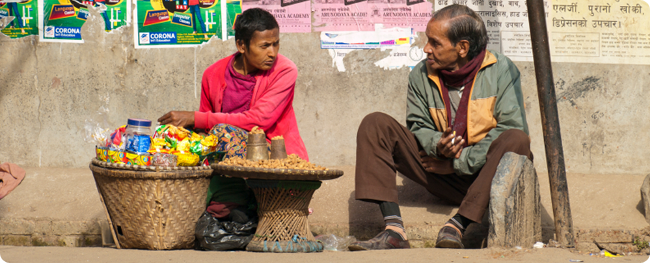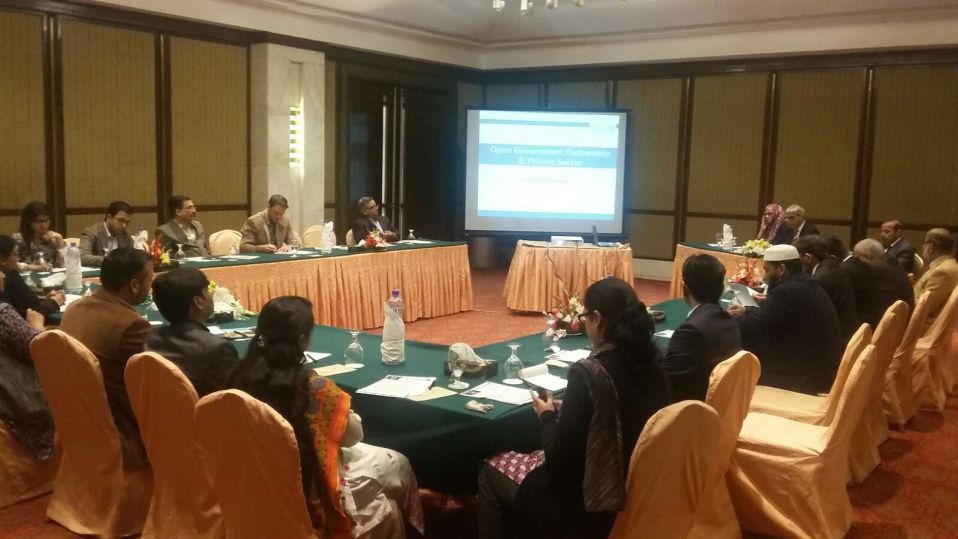NEWS
December 7, 2015

IN BRIEF
By: Blair Glencorse, Hammad Siddiqui and Fayyaz Yaseen. This blog post was originally published by the Open Government Partnership. “We support open government not just because it is good for business but because is central to human rights and dignity” concluded a leading member of the Lahore Chamber of Commerce & Industry at the recent Open Government Partnership (OGP) meeting in Pakistan. With an attitude like this, it is easy to see why the movement for transparency and accountability is gathering pace across the country; and with Pakistan now eligible, there is a real push to join the OGP. The meeting- [...]
SHARE

By: Blair Glencorse, Hammad Siddiqui and Fayyaz Yaseen. This blog post was originally published by the Open Government Partnership.
“We support open government not just because it is good for business but because is central to human rights and dignity” concluded a leading member of the Lahore Chamber of Commerce & Industry at the recent Open Government Partnership (OGP) meeting in Pakistan. With an attitude like this, it is easy to see why the movement for transparency and accountability is gathering pace across the country; and with Pakistan now eligible, there is a real push to join the OGP.
The meeting- led by a core working group of the Center for International Private Enterprise (CIPE), the Accountability Lab, the Open Society Foundations, the Sub-National Governance Program, the Policy Research Institute of the Market Economy (PRIME) and the Asia Foundation– brought together around 30 of Pakistan’s leading advocates for open government across the private sector, government and civil society. The movement to be part of the OGP in Pakistan is somewhat unusual in that it is largely being led by the private sector- which has come together around the value to business of joining the initiative- including better access to key data, improved ease of doing business, lower transaction costs and reduced corruption. The business community also clearly realizes that this is not just about shifting the status quo today, it is about the future of industry in Pakistan- because more transparent government data unlock profits through allowing for greater innovation.
And Pakistan has been making some impressive progress recently in opening up governance- earlier in the day, the Accountability Lab team visited the Punjab Information Technology Board, for example, which currently runs over 250 citizen engagement and open data initiatives, used by millions of people every day. Khyber Pakhtunkhwa and Punjab have passed some of the most progressive Right to Information (RTI) laws in the world; and organizations like the Technology for the People Initiative and Peshawar 2.0 are developing civic technology tools and opportunities that are improving cities.
Pakistan still faces significant challenges around these issues, of course- much of the conversation in Lahore focused on what the government can do to make data more accessible, more usable and more organized. One participant explained that he can get what-should-be-public information on Pakistani customs from a Chinese company for a fee, but not from the Pakistani government itself- which says a great deal about some of the dynamics in play. Equally, while there have been some indications that there is political will around these issues (the Vision 2025 document includes a whole section on open government, for example) the government can be slow to respond to pressure for greater transparency and accountability.
Lessons from elsewhere may be instructive- within the region, Sri Lanka recently became the first country to join the OGP in response to citizen-led demands for greater transparency and a careful focus on a process of consensus-building across government. And in the Philippines, the administration in Manila has engaged the private sector in very positive ways around OGP, and has made significant progress on issues such as the ease of doing business as a result.
In Pakistan, the private sector is not waiting for government but will lead the way in showing the value in the OGP process. The core group will soon convene a private sector task force to draft an initial “shadow” OGP action plan- and bring in a larger civil society coalition to provide additional ideas and feedback. This can then be used both as a blueprint for reforms and an advocacy tool to push for commitments to transparency. After all, these issues affect not just the bottom-line for the business community, they are also critical to the rights of citizens. As a large country with an incredibly vibrant private sector and civil society, Pakistan now has a real opportunity to lead the open government movement in South Asia. We’ll keep you posted on the progress.
Blair Glencorse and Fayyaz Yaseen run the Accountability Lab in Pakistan. Hammad Siddiqui is the Deputy Country Director for the Center for International Private Enterprise (CIPE) in Pakistan and a Board Member of Accountability Lab Pakistan.
